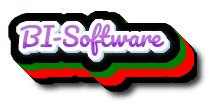In today’s fast-paced business world, staying ahead of the competition requires leveraging the latest technologies to streamline operations, enhance customer experience, and drive growth. Two essential tools that have revolutionized the way businesses operate are Customer Relationship Management (CRM) systems and brain software, also known as brain-computer interface (BCI) technology. In this article, we will delve into the concept of integrating CRM systems with brain software, exploring the benefits, challenges, and potential applications of this innovative combination.
<img src=”https://outfunnel.com/wp-content/uploads/2020/09/Hubspot-crm-integrations.png” alt=”Unlocking the Power of CRM Integrations with Brain Software” />
What is Brain Software?
Brain software, also known as brain-computer interface (BCI) technology, refers to the development of systems that enable people to control devices or communicate with others using only their brain signals. This technology has been primarily used in the medical field to help individuals with paralysis, ALS, or other motor disorders communicate and interact with their environment. However, its potential applications extend far beyond the medical field, with possibilities in fields such as gaming, education, and marketing.
CRM Systems: A Brief Overview
Customer Relationship Management (CRM) systems are software applications designed to manage and analyze customer interactions, data, and relationships throughout the customer lifecycle. CRMs help businesses track customer contacts, sales, marketing, and customer service activities, providing a 360-degree view of customer interactions. By integrating CRM systems with brain software, businesses can take their customer relationships to the next level, enhancing customer experience, improving sales, and driving growth.
Integrating CRM with Brain Software: The Benefits
The integration of CRM systems with brain software offers numerous benefits, including:
- Enhanced Customer Experience: By using brain software to analyze customer brain signals, businesses can gain a deeper understanding of customer behavior, preferences, and emotions. This information can be used to create personalized marketing campaigns, improving customer engagement and loyalty.
- Improved Sales Forecasting: Brain software can help sales teams anticipate customer needs, identify new sales opportunities, and predict customer behavior. This enables businesses to optimize their sales strategies, maximizing revenue and growth.
- Increased Efficiency: Automating routine tasks and processes using brain software can free up sales teams to focus on high-value activities, such as building relationships and closing deals.
- Better Decision-Making: By analyzing customer brain signals, businesses can gain valuable insights into customer decision-making processes, enabling them to make data-driven decisions and optimize their marketing strategies.
Challenges and Limitations
While the integration of CRM systems with brain software offers numerous benefits, there are also challenges and limitations to consider:
- Data Quality and Security: The integration of brain software with CRM systems raises concerns about data quality, security, and privacy. Businesses must ensure that customer brain signal data is handled and stored securely, in compliance with relevant regulations.
- Technical Complexity: Integrating brain software with CRM systems can be technically complex, requiring significant expertise and resources.
- Cost and Investment: Implementing brain software and integrating it with CRM systems can require significant investment, which may be a barrier for small and medium-sized businesses.
- Ethical Considerations: The use of brain software raises ethical concerns, such as the potential for brain signal data to be used for manipulative or coercive purposes.
Potential Applications
The integration of CRM systems with brain software has numerous potential applications across various industries, including:
- Marketing and Advertising: Brain software can help businesses create personalized marketing campaigns, improving customer engagement and loyalty.
- Sales and Customer Service: Brain software can enable sales teams to anticipate customer needs, identify new sales opportunities, and predict customer behavior.
- Healthcare: Brain software can help healthcare professionals diagnose and treat neurological disorders, such as Alzheimer’s disease and Parkinson’s disease.
- Gaming and Entertainment: Brain software can enable gamers to control games using only their brain signals, creating a more immersive and engaging experience.
FAQs
- What is brain software, and how does it work?
Brain software, also known as brain-computer interface (BCI) technology, refers to the development of systems that enable people to control devices or communicate with others using only their brain signals. - How can CRM systems be integrated with brain software?
CRM systems can be integrated with brain software using APIs, software development kits (SDKs), or other integration tools. - What are the benefits of integrating CRM systems with brain software?
The benefits of integrating CRM systems with brain software include enhanced customer experience, improved sales forecasting, increased efficiency, and better decision-making. - What are the challenges and limitations of integrating CRM systems with brain software?
The challenges and limitations of integrating CRM systems with brain software include data quality and security concerns, technical complexity, cost and investment, and ethical considerations. - What are the potential applications of integrating CRM systems with brain software?
The potential applications of integrating CRM systems with brain software include marketing and advertising, sales and customer service, healthcare, and gaming and entertainment.
Conclusion
The integration of CRM systems with brain software offers numerous benefits, including enhanced customer experience, improved sales forecasting, increased efficiency, and better decision-making. While there are challenges and limitations to consider, the potential applications of this innovative combination are vast and varied. As businesses continue to explore the possibilities of brain software, we can expect to see significant advancements in the field of CRM and customer relationship management. By harnessing the power of brain software and CRM systems, businesses can unlock new opportunities for growth, innovation, and success.
<h2>Closure</h2>
Thus, we hope this article has provided valuable insights into Unlocking the Power of CRM Integrations with Brain Software. We thank you for taking the time to read this article. See you in our next article!
